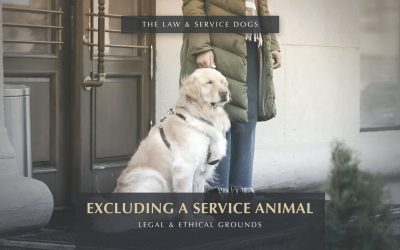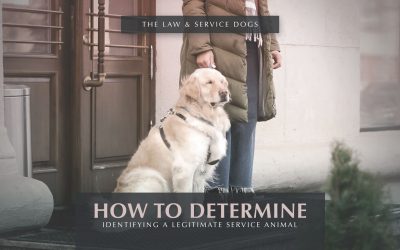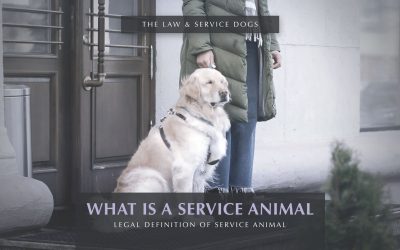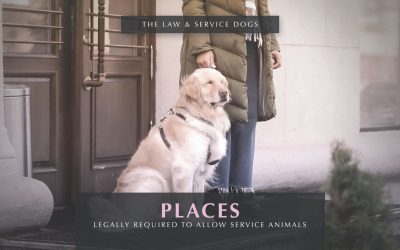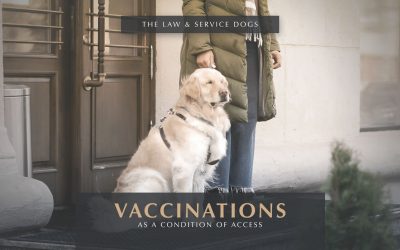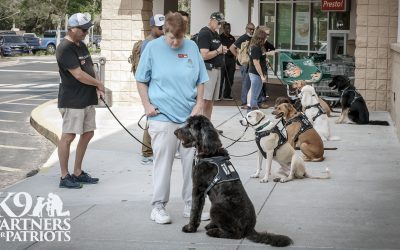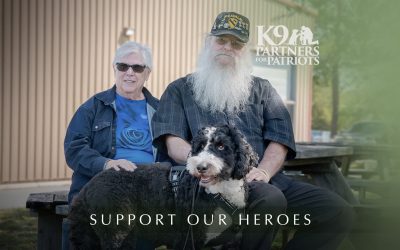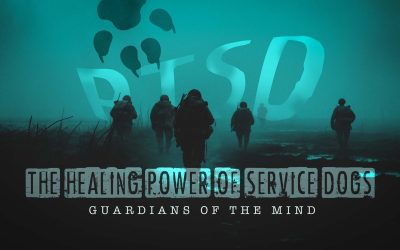
Welcome FAQ
Frequently asked questionsCommon Questions Regarding Your Service Dog
Excluding A Service Animal
Learn when a service animal can be excluded from a public space under the ADA. Understand the circumstances for exclusion, how businesses should handle it, and the legal protections for service animal handlers.
Determining Service Animals VS. Pets DOJ Guidance
Learn how the DOJ helps businesses determine whether a dog is a service animal or a pet. Discover key questions, credible assurance, and how behavior, handler control, and consistency play a role in the assessment process.
What is a Service Animal?
Definition and Legal Rights under the ADA of What is a Service Animal? Learn about the tasks service dogs perform, their rights in public spaces, and how they differ from pets.
Where Service Animals Are Allowed – Places Covered Under the ADA
Discover which public and private entities are considered “Covered Entities” under the ADA. Learn about the rights of individuals with service animals to access businesses, schools, healthcare facilities, and more without discrimination.
Service Animal Vaccinations and ADA Access – What You Need to Know
Under the ADA, service animals cannot be denied entry or required to provide vaccination proof. Learn about the DOJ’s regulations and how they protect individuals with disabilities from unnecessary barriers in public spaces.
K9 Partners for Patriots 10-Year Anniversary Open House
Celebrating 10 years of hope and healing! Join us in honoring veterans, service dogs, and community with event highlights and our vision for the future.
Understanding PTSD Triggers in Veterans
Discover common PTSD triggers for veterans and how K9 Partners for Patriots service dogs help them regain peace and independence.
How Leland’s Service Dog Kayla Transformed His Life
Discover how Vietnam veteran Leland found renewed purpose and comfort through his service dog, Kayla, at K9 Partners for Patriots.
Understanding Military Sexual Trauma (MST)
Learn about Military Sexual Trauma (MST), its impact on veterans, and the support available through K9 Partners for Patriots.
What is PTSD?
Post-Traumatic Stress Disorder (PTSD) is a mental health condition triggered by experiencing or witnessing a traumatic event.
Q: What are the benefits of crate training?
Q: Will you always need to keep your dog crated?
Q: What are the benefits of range feeding vs. morning/evening meals?
Q: Why do I need to carry a dog pack?
A: You always need to be prepared to have the items needed to care for your dog. We recommend the following to be included in your “dog pack”:
- Water/Food Bowl
- Food/treats
- Towel/blanket
- Extra leash/extra collar
- Bottled water
- Copy of Shot records
- Benadryl/Imodium/pepto bismol/phazyme
- Flexi leash for bathroom purposes
- Poop bags
Q: How do I introduce my dog to another dog?
A: Most dog fights are caused by people. Typically those fall into three (3) categories:
- People wanting their dogs to meet other dogs too fast
- People not paying attention to their dogs and the signals from the dogs
- People that let their dogs do whatever they want and have no control over their dog
Do not assume that just because your dog is friendly there would be no problem. Dogs are pack animals and there is a hierarchy. Always ask the owner first if their dog is dog-friendly. If so, then both dog owners approach each other from an angle (never straight on). Watch your dog for any signs of aggression/anxiety etc.
You always want to make this a positive situation. Even if the dogs look good at their first meeting, do not automatically let them play, take it slow. You do not want the dogs to have a bad experience.
Never put your dog into the dog run with another dog until you have cleared with the owner to be sure the other dog is not dog aggressive. Always keep in mind that some dogs play hard and some dogs play soft.
Q: How do I stop /biting/nipping/teething/mouthing of my dog?
Q: Should I let other people pet or give my SD treats?
A: Normally the answer is NO, but it is truly up to you as the handler. Please keep in mind though, if you allow it to happen on a regular basis while your SD has its working harness on, you are ultimately teaching your SD, that it’s okay for them to leave you if someone is trying to pet or give them treats.
We teach that no one is allowed to pet your SD while it has its harness on and is working. We also teach that no one other than you should give your SD treats. If you want to allow your SD to be petted by someone, please take off their harness so they know that s/he has some free time to “mingle”. If someone offers your SD a treat, ask the person to hand the treat to you, and you will give the treat to your dog.
Q: How do I stop my dog from chewing things? (Shoes, Underwear, etc.)
A: This is all going to depend on what the dog is chewing. At the end of the day, your SD is still a dog, and will at some point do “dog” things. In the dog world, if they have “access” to something then, it’s fair game.
That being said, if your SD is chewing items like shoes, underwear, etc., put those items up and in an area that your SD will not have access to them. If they get into something, because you’re not watching/paying attention to them, then ultimately it’s YOUR fault. When you cannot watch your SD, put them in their crate. This will not only keep them safe, but your belongings safe as well.
Q: Should I let my SD outside by itself at my house?
Q: How do I handle Confrontation / Access Issues / Certification Questions?
A: We will go over these in depth in your classes. A lot of the problems that SD teams face, are simply due to a business entity not knowing the laws regarding SD’s/SDiT’s. It is our job as SD teams, to do our best to educate the public. The public can be unforgiving with their questions. They can be downright rude about things. The biggest thing to remember if you’re being confronted is to STAY CALM.
At the beginner level of training, you should ONLY be taking your SDiT to places where pets are allowed (PetSmart, Petco, Tractor Supply, Lowe’s, etc.). This should cut down on issues where confrontation/access are concerned.
If at any time, you have an issue at an establishment, get their contact information and one of our staff members will contact them.
